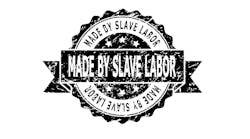The origins of the modern labor union movement were born in bile and blood. Violence and anger were hallmarks of both management and unions for so long that even when organizing drives were successfully completed, sporadic extreme language and action by union members tended to be dismissed because these were considered largely rough, working class men and after all, as the saying went, “boys will be boys.”
In the late 20th Century employers began pushing back against this viewpoint still held by lenient regulators and courts who continued to take a largely understanding view of worker misbehavior in the context of labor-management relations.
Under Section 7 of the 1935 National Labor Relations Act (NLRA), employee complaints about wages and working conditions was firmly established as a protected activity under the law. As the years went by, much in the way of angry expression and intemperate language was permitted as long as it could be plausibly tied to this protected activity.
However, recent evidence suggests the tide is beginning to turn. In a 2016 court decision, a federal judge boldly declared “the days of ‘boys will be boys’ must end.” This July, the National Labor Relations Board (NLRB) acknowledged employers can discipline employees engaged in protected activity if they also would have disciplined them for the same behavior outside of protected activity.
“The decision should renew employers’ confidence when faced with abusive or offensive conduct by employees simultaneously engaged in protected activity under the NLRA, particularly where employers have a documented record of even-handed discipline for similar conduct,” says attorney Nicholas Morisani of the law firm of Phelps Dunbar.
The NLRB said the previous lenient standard “has largely swallowed employers’ concomitant right to maintain order, respect, and a workplace free from invidious discrimination.” The board stressed that protected activity can be accomplished without resorting to abusive conduct, and that nothing in the NLRA suggests abusive conduct is an inherent part of protected activity.
“This ruling applies retroactively and provides employers more clarity and freedom regarding whether they can punish abusive conduct done under the cloak of protected activity,” points out attorney Joseph S. Persoff of the Baker & Hostetler law firm.
Interestingly, this change is coming at a time when tolerance has dissolved for any kind of verbal harassment and workplace bullying. In 2017, a Teamsters union local in Boston got in trouble when its members hurled racial, sexist and religious insults at TV’s “Top Chef” judge Padma Lakshmi as her car drove past their picket line.
The NLRB’s decision should yield predictable and common-sense results, according to legal observers. The board’s decision removes the judicial handcuffs imposed by the former legal standard, which weighed heavily in favor of protecting Section 7 conduct despite egregious conduct by the employee, says Gary Simpler, a partner with the Shawe Rosenthal law firm.
“Now employers can hold employees accountable for their abusive or offensive conduct on the same basis as employees who are not engaged in protected activities,” Simpler says. Victims of harassment, discrimination and other abusive conduct no longer need be concerned that abusers are immune from discipline when they are engaged in protected activity, he notes.
Attorneys Douglas Darch, Bill Dugan and Stephanie Priel of the Baker McKenzie law firm urge employers to review and revise their work rules and anti-harassment policies. They say employers also should review past enforcement of work rules to make sure they are consistently applied.
“If enforcement has not been consistent, employers should consider re-issuing their work rules and non-harassment policies and starting fresh,” they say. “Revising such policies for consistency carries an added bonus, as it will allow employers to implement policies that increase diversity and inclusion.”




